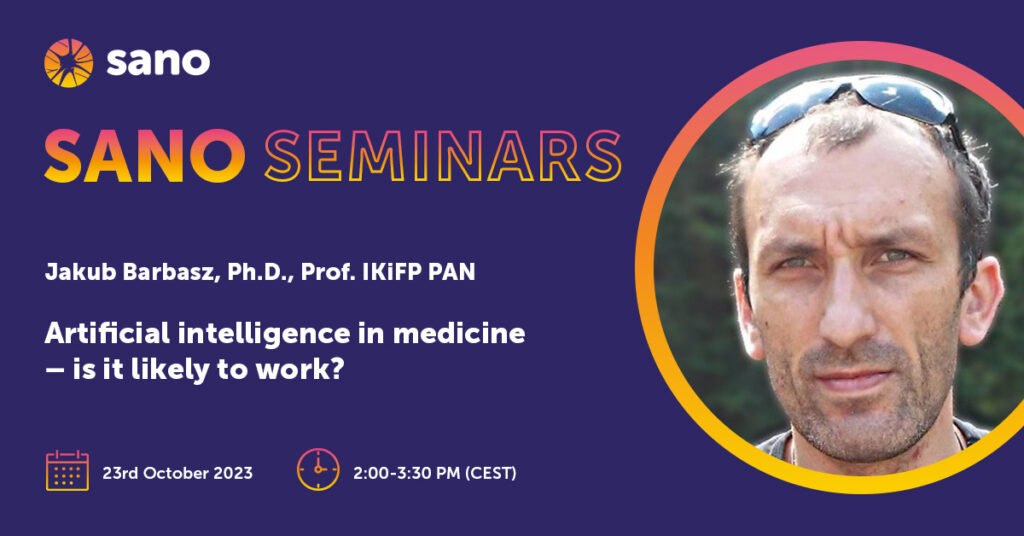109. Artificial intelligence in medicine – is it likely to work?
Jakub Barbasz, Ph.D., Prof. IKiFP PAN
Abstract
Artificial intelligence (AI) is playing an increasingly important role in the field of medical diagnostics, becoming a 0potential replacement for traditional diagnosticians.
In terms of benefits, it is highlighted as reducing diagnostic time, improving the accuracy of results and increasing the accessibility of healthcare, especially in areas with low access to specialists. However, ethical, regulatory and data security aspects cannot be overlooked, which are crucial to the successful implementation of AI in medicine.
During the talk, we will discuss the most important aspects of using AI in medicine in a rational and effective manner.
We will also look at the problems that researchers dealing with AI in medicine have to face that researchers in other areas do not.
Finally, we will consider the meaning of AI in medicine from a business perspective.
About the author
Interdisciplinary scientist working in areas at the intersection of chemistry, physics, cognitive science and artificial intelligence.
He currently heads the research group “Systems in Nano and Microscale” at IKiFP PAN, and is a member of Biolab at Mark Kac Center.
Previously, he worked at FAiS UJ and at Cognilab.
In addition to his scientific activities, he is co-founder/co-owner of several knowledge-based companies, including Digitmed S.A.


